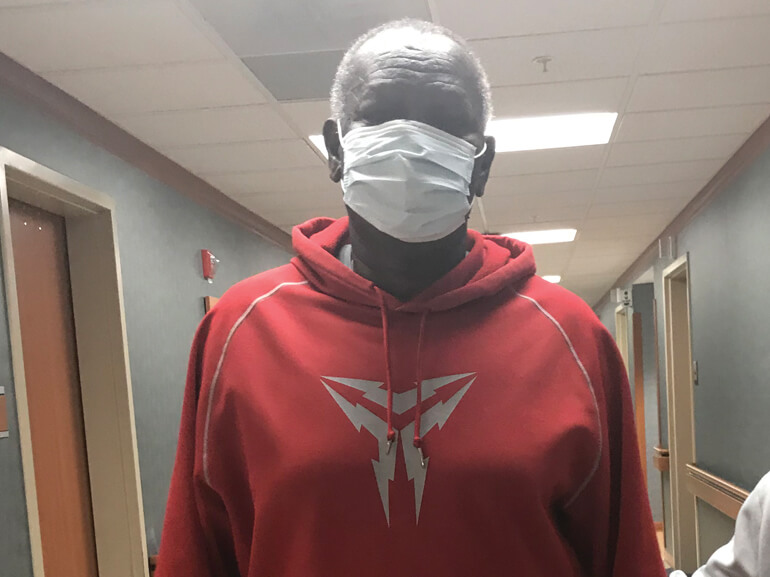Gordon Ogwa’s story

Heading home to Texas
In March, Gordon Ogwa, a 63-year-old truck driver from Texas, was passing through Pennsylvania on a return trip from Massachusetts. He pulled into a truck stop near Hershey to grab some dinner. As he went inside, Gordon felt exhausted but chalked it up to his many long hours behind the wheel. While eating, he suddenly developed shortness of breath.
At that moment, Gordon knew something was wrong and dialed 911. An ambulance transported him to Penn State Health Milton S. Hershey Medical Center, where his condition quickly deteriorated. He was moved to the intensive care unit, sedated and had breathing tube inserted. A coronavirus test was performed and came back positive for COVID-19.
At one point, palliative care doctors called his three adult children to ask about any advanced directives for extended life support. Luckily, not long after the conversation, Gordon started showing signs of improvement.
In early April, the breathing tube was removed.
“When they turned off the sedation, I woke up and was so tired,” Gordon said. “I didn’t know what happened to me. I was in a dreamland at first. I could not even carry on a conversation with my children over the phone. I was only mumbling and not thinking clearly.”
Gordon spent a month in the hospital before his condition stabilized. He knew his road to recovery would be long, and he chose Penn State Health Rehabilitation Hospital for its focus on building strength, endurance and independence in patients experiencing serious illnesses.
Upon admission, Gordon was unable to sit up, feed himself, stand or walk and his breathing was still shallow. His goal was “to get back to normal” so he could take walks and see his children and grandchildren.
During the course of the viral battle, he’d lost 60 pounds and much of his strength. Even sitting on the bedside was difficult. Therapists encouraged him to take it step-by-step, starting by exercising his arms and legs. Tasks got easier each day.
Gordon participated in occupational therapy to help with bed mobility, transferring from one surface to another and daily living activities, such as dressing.
To improve standing balance, physical and occupational therapists helped Gordon shave, brush his teeth and perform light housekeeping. The first shower by himself was a major milestone.
In physical therapy, Gordon used weighted balls, lifting bars and resistance bands to regain strength and endurance.
“One day they said, ‘Do you want to walk in the hall?’ and I walked all the way to the end and back,” Gordon said. “I felt so motivated.”
Over time, Gordon was able to navigate without a walker and reach greater distances until he covered more than 1,000 feet, indoors and outdoors.
Gordon also participated in board games, ball and ring tosses while standing to simulate activities that he may do with his grandchildren.
Although far from home, his care team kept the family connected through daily phone calls and video chats. Each time Gordon saw his loved ones, it gave him motivation to try harder.
After 37 days at the rehab hospital, Gordon was ready to head back to Texas. He said he will never forget the team that gave him his life back.
“There is goodness in here,” Gordon said. “It’s the best place I’ve ever been.”